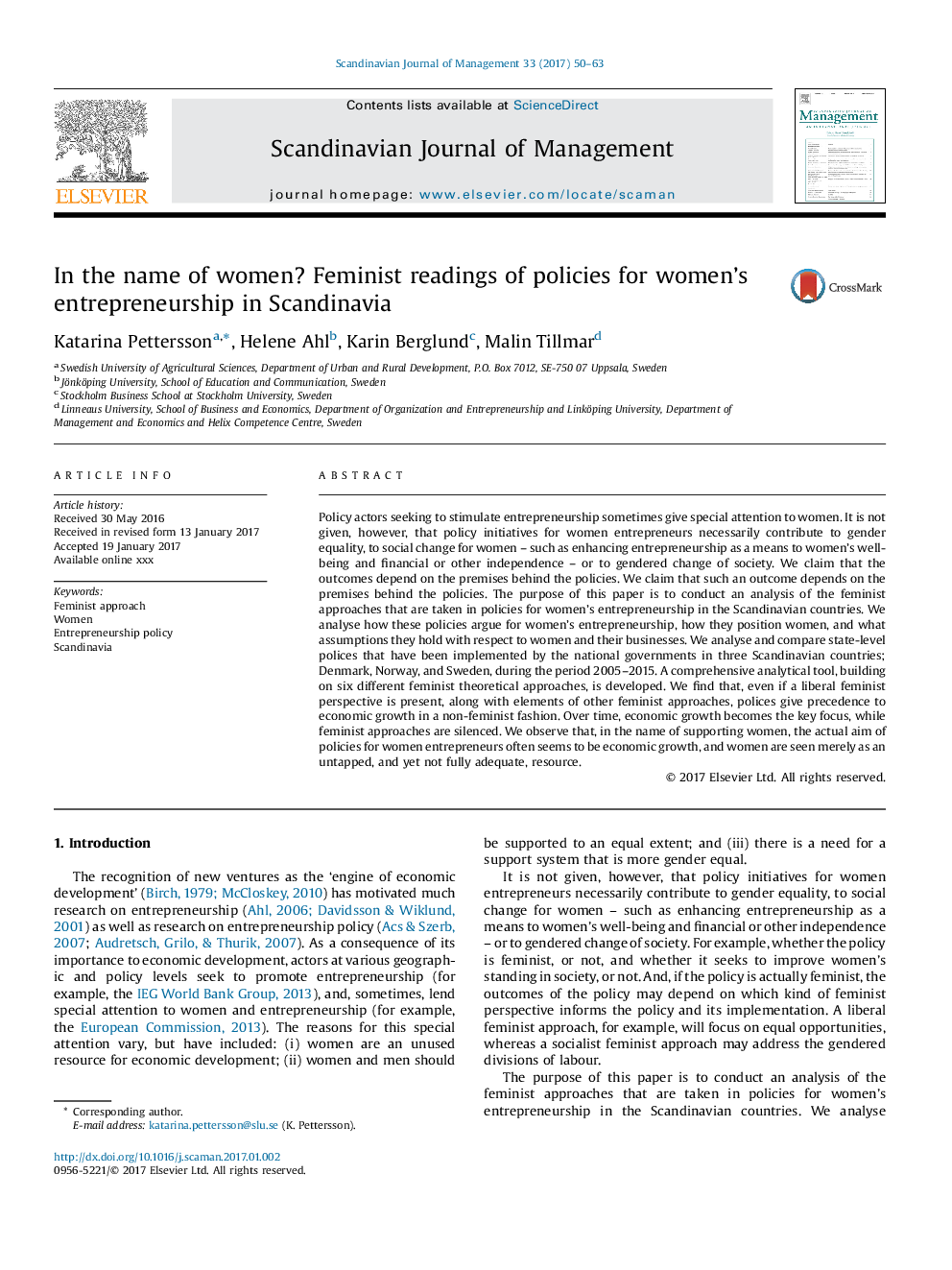ترجمه فارسی عنوان مقاله
به نام زنان؟ قرائت فمینیستی از سیاست های کارآفرینی زنان در آسیا در اسکاندیناوی
عنوان انگلیسی
In the name of women? Feminist readings of policies for womenâs entrepreneurship in Scandinavia
| کد مقاله | سال انتشار | تعداد صفحات مقاله انگلیسی |
|---|---|---|
| 130187 | 2017 | 14 صفحه PDF |
منبع

Publisher : Elsevier - Science Direct (الزویر - ساینس دایرکت)
Journal : Scandinavian Journal of Management, Volume 33, Issue 1, March 2017, Pages 50-63
ترجمه کلمات کلیدی
رویکرد فمینیستی، زنان، سیاست کارآفرینی، اسکاندیناوی،
کلمات کلیدی انگلیسی
Feminist approach; Women; Entrepreneurship policy; Scandinavia;

